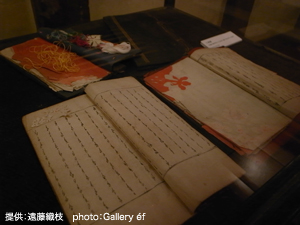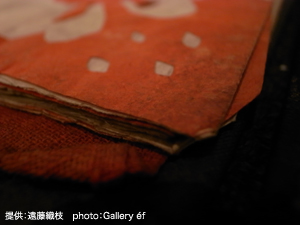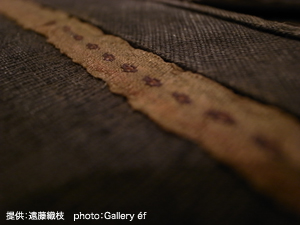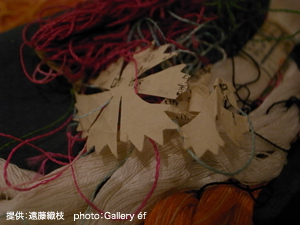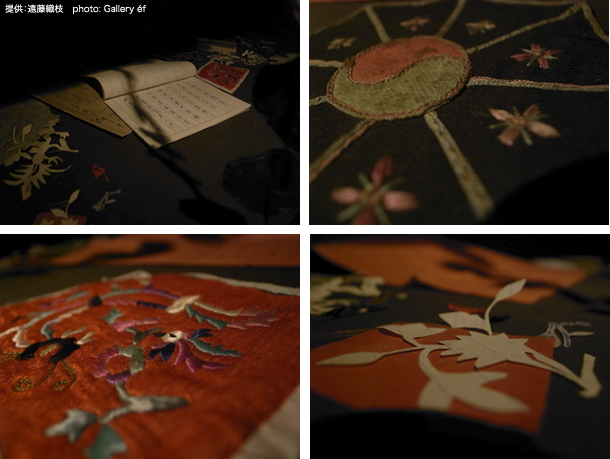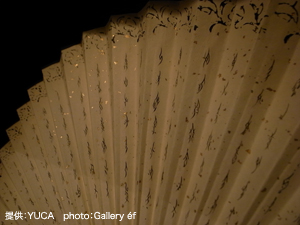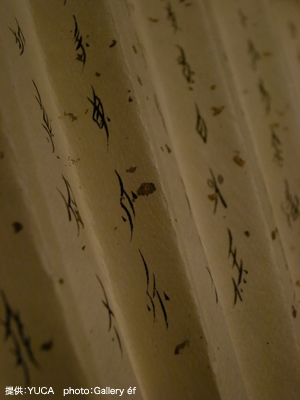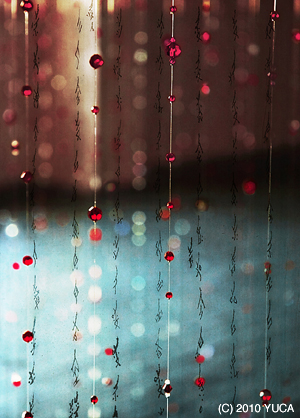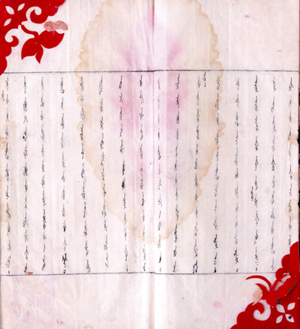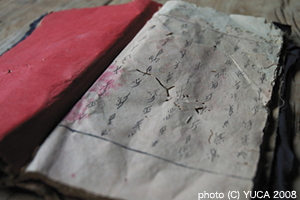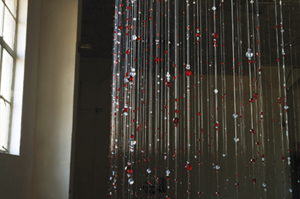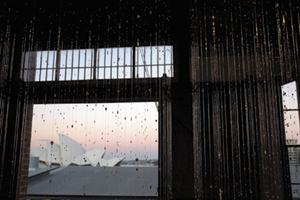Fri. 26 March - Sun. 9 May 2010
12:00-20:00 | closed on Tuesdays
Orie Endo (researcher) x YUCA (artist)
NüShu: Art x Academia Crossover
site-specific installation
Gallery éf presents a site-specific show on NüShu, a unique collaboration between an artist and an academic. NüShu is an original script that was created and used only by women in a region of Hunan province, China. Under the long-standing patriarchy where women lived a life with no freedom, no education and low self-esteem, they miraculously developed their own script. Passed down from generation to generation, this script allowed the women to express themselves and was the only means of communicating with other women of their social group. Being disregarded by men, NüShu was a virtually unknown script for centuries till the 1980's when it came to the attention of Chinese scholars. Many manuscripts were destroyed during the Cultural Revolution partly because of suspicion that the script was a spy code, and partly because it was regarded as a reflection of Chinese feudalism. Eventually NüShu fell into disuse with the spread of Hanzi education and the social change after the 1949 liberation. In 2004, when the last of the authentic NüShu generation passed away, its culture also vanished from the world, without its origin and historical background being elucidated. The sociolinguist Orie Endo is one of few researchers specialized in NüShu. When she first learned of NüShu's existence in 1992, she was captivated by the beauty of the script and with the women's fervent desire for communication. Endo has been working passionately on the preservation of NüShu as a cultural heritage by conducting fieldwork between her academic activities and publications. For the artist YUCA, the encounter with NüShu came in 2001 in China. The significance of NüShu immediately caught her attention and prompted her to launch a series of art projects in Shanghai(2004) and Sydney(2007) where her installation consisted of 30,000 crystals “speaking the world of NüShu” as a tangible evocation of the women's spirit. YUCA says, “If we look at world-globalization as a metaphor of desertization, vanishing cultures are gems of diversity doomed to disappear in the sand sea.” In this exhibition, “NüShu: Art x Academia Crossover”, YUCA's art work is a catalyst to help us connect with the human heritage that is usually confined to the likes of academic experts. Art speaks to our senses, whereas Endo's academic research guides us to logical understanding, and together, they lead us to deeper experiences of human wisdom. While Art and Academia demonstrate a dialogue, the host gallery space is an important historical and cultural legacy. Built in 1868 as a warehouse in Asakusa, the building from late Edo period has miraculously escaped from two catastrophes: Japan's largest earthquake in 1923 and World War II. The building was given a second life as an art gallery by passionate artists and craftsmen in 1997. While drawing attention to its revived architecture, Gallery éf, has been hosting exhibitions exploring the roles of contemporary art in our society. In this exhibition Gallery éf will present a rare NüShu manuscript from Endo's collection. The verses written in the manuscript actually denote contradicting feelings: sorrow and happiness. When YUCA's site-specific installation resonates with the ambivalent spirit embedded in the manuscript, voices from the past echo in polyphony, reaching over to our time.
|
|
|
|
|
Orie Endo | researcher Publications : |
YUCA | artist |
| Gallery éf | venue The space was originally built in 1868 as a warehouse and remains the embodiment of Edo architecture. It has miraculously survived two great fires, the huge earthquake of 1923, fire-bombing during the Second World War, and constant re-development, making it unique in downtown Tokyo. In 1997 this building was reopened as an art gallery with a cafe/bar space. Many artists and craftsmen have gathered to transform this space, giving it a new lease of life as a space for communication and cultural exchange. Various international collaborations, such as art exhibitions, music concerts, performances are presented. |
|
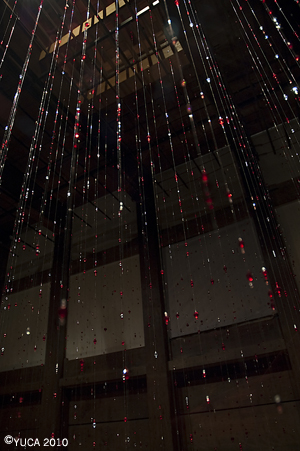 |
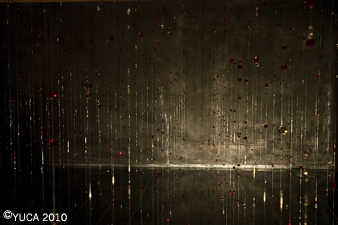 |
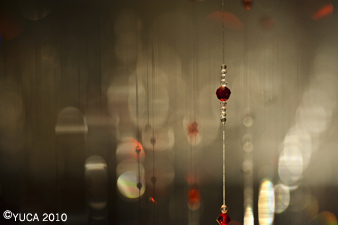 |
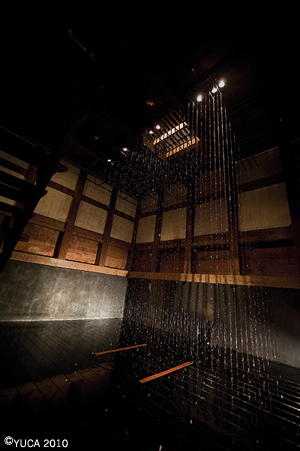 |
